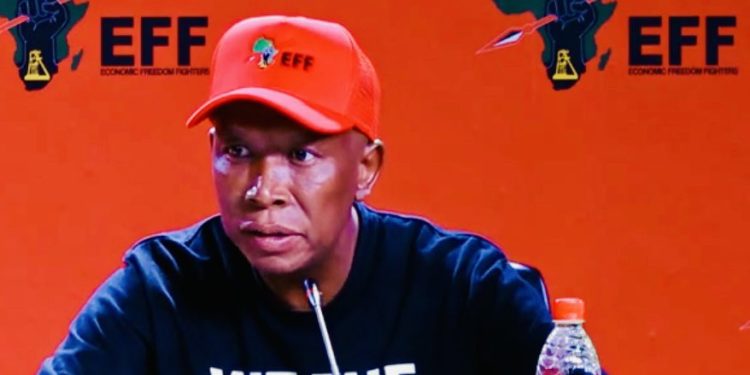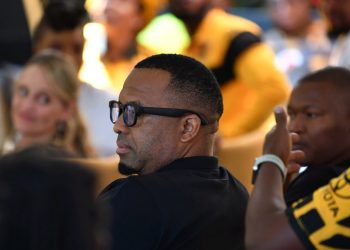EFF leader Julius Malema has sparked intense debate with his bold declaration that every South African political party – except his own – is controlled by white people. Speaking with characteristic confidence, Malema stated: “I can tell you this without any fear of contradiction – ALL POLITICAL PARTIES IN SOUTH AFRICA, with the exception of the EFF, are controlled by white people.” He extended the claim to former president Jacob Zuma’s MK Party, adding: “The same goes for MK – they too are white-controlled.”
The remarks have ignited widespread discussion among political observers and the public, further fueling South Africa’s ongoing discourse on race, power, and political autonomy.
Malema’s Uncompromising Stance
Malema’s phrasing – “without any fear of contradiction” – underscores his unwavering conviction in the claim. He positions the EFF as the only party truly free from white influence, framing it as the sole political force authentically representing black South Africans. His inclusion of the MK Party in the accusation suggests a broader critique of liberation movements-turned-political parties that he believes have compromised their original mandates.
This is not the first time Malema has raised concerns about who wields real power in South African politics. His latest comments reinforce his long-standing argument that economic and political control remains concentrated in the hands of a privileged minority, despite the country’s democratic transition.
MALEMA: I can tell you this without any fear of contradiction – ALL POLITICAL PARTIES IN SOUTH AFRICA EXCEPT THE EFF, are White Controlled. The same goes to MK by the way, they are White Controlled.#EFFPresser
— Economic Freedom Fighters (@EFFSouthAfrica) April 28, 2025
Mixed Reactions: Support and Criticism
The statement has drawn strong reactions across the political spectrum.
-
EFF supporters have rallied behind Malema’s words, viewing them as a necessary truth-telling moment. Many believe the EFF is the only party challenging systemic inequality and white economic dominance.
-
Critics, however, argue that the claim is an oversimplification. Opposition parties, including the DA, ActionSA, and the IFP, have diverse leadership structures, and Malema’s blanket assertion ignores their internal dynamics. Some accuse him of using divisive rhetoric to galvanize his base rather than engaging in substantive debate.
A Broader Debate on Power and Representation
Regardless of differing opinions, Malema’s comments have forced a renewed examination of political accountability in South Africa. Key questions being raised include:
-
Who truly holds influence in major political parties?
-
Are parties genuinely serving the interests of ordinary South Africans, or are they beholden to elite agendas?
-
How does race intersect with economic and political power in post-apartheid South Africa?
The discussion has spilled over into social media, talk radio, and everyday conversations, with some citizens reconsidering their political allegiances while others dismiss Malema’s remarks as inflammatory.
Conclusion: A Provocation with Political Consequences
Malema’s statements are strategically timed, as political tensions rise ahead of the 2026 elections. By framing the EFF as the only “uncontrolled” party, he reinforces its image as a radical alternative to the establishment. Whether his claims are accepted or rejected, they ensure that the EFF remains at the center of national discourse.
As the debate continues, one thing is clear: Malema’s words have once again succeeded in shaking up South Africa’s political landscape, forcing voters to confront uncomfortable questions about power, race, and representation.






















